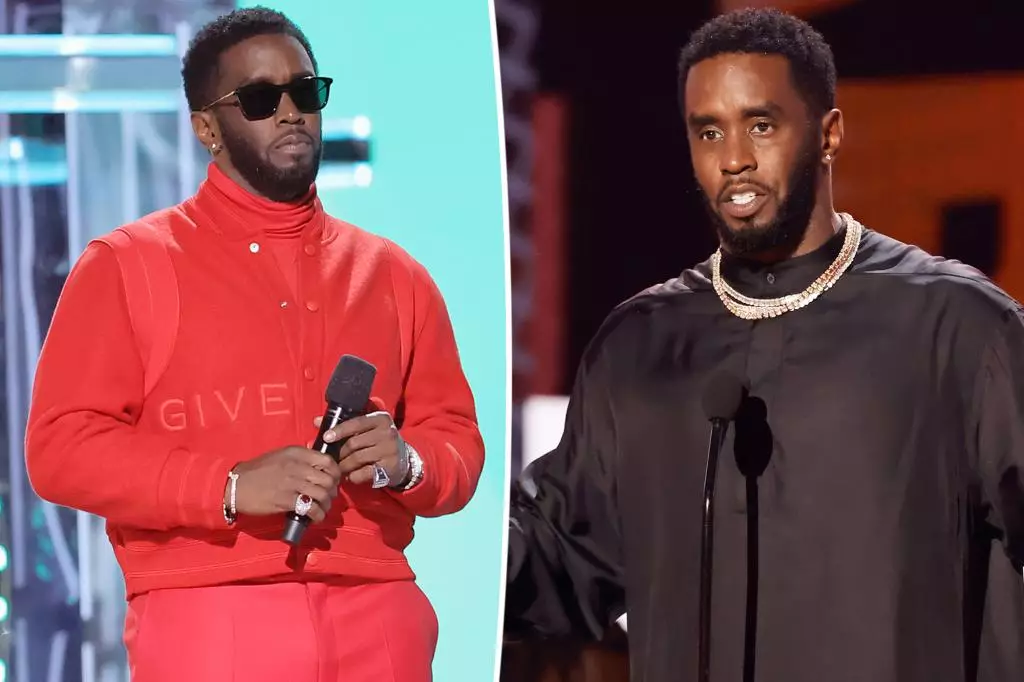The proposition of celebrities facing legal troubles often commands headlines, and Sean “Diddy” Combs is currently at the epicenter of such a narrative. With accusations of sex trafficking and racketeering hovering over him, the stakes couldn’t be higher. Diddy is now expected to testify in his trial, raising significant questions about the wisdom of this decision, especially as initial assessments from legal experts suggest it might not be in his best interest. In an intricate legal landscape where every word can have profound implications, the potential repercussions of testifying introduce a range of risks that must be examined.
The Case Against Diddy: Context and Implications
Diddy’s indictment is a serious matter; yet, the public is often more captivated by the glamour surrounding his persona. A 14-page indictment levies allegations that he has been involved in a series of egregious activities, from racketeering and sex trafficking to forced labor and obstruction of justice. Each of these acts depicts a life imbued with the complexities of fame and power. Prosecutors have alleged that Diddy orchestrated a criminal enterprise with the purpose of satisfying personal desires while managing to silence dissent and keep his reputation intact.
Although serious, the allegations also shine a spotlight on life within celebrity circles, where the boundaries of morality can sometimes be obscured. The infamous gatherings dubbed “Freak Off” parties are emblematic of an extravagant lifestyle that has, according to criminal allegations, veered perilously into the realm of exploitation. The reports of hotel rooms laden with controlled substances and the presence of items like baby oil and lubricant severely tarnish the image that Diddy may wish to project in a courtroom.
The Dilemma of Testifying: An Attorney’s Perspective
Despite the gravity of the charges, Diddy’s legal team appears resolute about his desire to take the witness stand. As noted by Meesha Moulton, a Las Vegas-based attorney, this might not align with the best legal strategy. In most trials, defense attorneys typically advise their clients against testifying due to the high likelihood of intense cross-examination. Moulton emphasizes that the prosecution will likely exploit any inconsistencies in Diddy’s testimony, potentially leading to damaging admissions that could undermine his case.
The notion of a defendant taking to the stand exposes them to relentless scrutiny, hampering their ability to maintain composure under pressure. Moulton raises a pertinent point: if Diddy displays any sign of agitation or distress, it could cast doubt in the minds of jurors, ultimately affecting their judgment. The risk here is not merely procedural but emotional, making the trial psychologically taxing for a celebrity who is already dealing with severe public scrutiny.
Moulton asserts that a more prudent approach would require Diddy to prioritize strategic defense over the instinct to provide a personal narrative. While the allure of humanizing oneself and challenging prosecution evidence is significant, doing so without a carefully orchestrated plan could unravel any advantage he might possess. Presenting a well-rounded image is crucial, but it demands preparation, composure, and shrewd defensive tactics.
Instead of taking the stand, it may well serve Diddy to let his attorneys lay out the facts without his direct involvement. This would allow for a clean delineation between advocacy and personal testimony, minimizing the risks associated with cross-examination while fostering an aura of dignity around his personal narrative — a pivot that could sway jurors’ perceptions.
The public nature of Diddy’s case only heightens the stakes. With testifying comes the added risk of the spotlight illuminating not only the legal issues at hand but also a multifaceted scrutiny of his character. If Diddy proceeds to testify, he must brace himself for an avalanche of inquiries and evidence that could range from specific allegations to broader implications about his conduct.
As things currently stand, Diddy has maintained his innocence in the glaring spotlight cast by multiple sexual assault lawsuits. While he faces the possibility of a lengthy prison sentence if convicted, the unpredictability of a trial adds another layer of complexity to an already challenging situation. His upcoming hearing on October 9 may be pivotal in determining the direction of his trial, potentially signaling whether he will engage in his own defense or rely on his attorneys to navigate the turbulent waters of legal jeopardy.
Diddy’s legal battle serves as a testament to the intricacies of navigating both personal and legal narratives amid an array of allegations. The possible ramifications of testifying could overshadow his quest for vindication, highlighting the importance of strategic legal counsel in high-profile cases. The balance between humanizing oneself and ensuring a solid defense is delicate, and Diddy must tread carefully as the courtroom approaches.


Leave a Reply